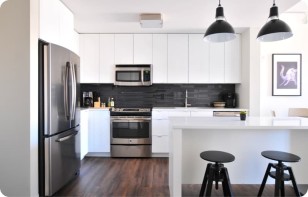German house prices under Covid: Cause for alarm or chance?
Covid-19 causes an unknown shock to Germany's economy. Should we worry about home prices falling, or should we use it as a buying chance?Updated on May 19, 2025

Here are some pointers followed by our conclusion.
Recent price momentum was very positive
Why is that important? House prices are slow-moving variables. This means it takes quite a bit for a trend to change, as the trend reflects underlying fundamentals, like low interest rates. There was a strong upward momentum, and it is, therefore, likely that some upward momentum will be maintained.
Early data support the notion that the momentum continues to be up
After a decline immediately following Covid-19's getting a foothold in Germany, buyer interest recovered, starting in mid-April.

House prices also continue to rise, but frankly, those data are lagging due to the long time it takes to conclude a purchase in Germany and reflect strong buying interest in January and February.
Our appointments are again up significantly.
Affordability is great
Houses are much more affordable than they have been in 30 years due to the low interest rates. This will provide impetus to increase prices.

Also, it is essential to realize that house prices in Germany declined from about 1970-2010 in real terms when they increased in other countries. This is also contributing to a very high level of affordability and underpins the underlying upward momentum.

Housing importance is up
With so many people working from home and being sequestered at home, many of us have a new appreciation of the importance of having a nice place to call your home. We even see it among our co-workers.
Unemployment could increase though
Real house prices in Germany correlate well with unemployment. This correlation is strong, it seems, because unemployment is an indication of prosperity, which in turn attracts immigrant workers – as we have seen in recent years, as well as in the sixties.
Going forward, we will see a rise in unemployment that is, in part, longer-lasting as we see some sectors (travel and tourism notably) facing a hard time. Other sectors (like IT in Berlin) are likely to continue to grow with the associated influx of highly skilled workers.
In other words, this is a significant negative, but not as much as a general rise in unemployment would be.
The interest rate outlook is still subdued
Interest rates are still lower than they had been before the outbreak of the crisis. While banks have raised the margins for mortgages somewhat, rates are still at all-time lows.
It takes a lot to have prices decline nominally
House prices have rarely declined in nominal terms in German history. Indeed, this is a global trend, with people being very averse to taking what they perceive as a nominal loss on the value of their home.
Sellers don't consider the price they bought as a starting point; they only consider it the highest nominal value they have estimated for their home. It typically takes forced sales to bring house prices down.
In conclusion
Many factors point to increasing house prices, particularly the momentum up, the high affordability and low interest rates, and the added appreciation for having a good home. The main negative is unemployment, but we see some mitigation in it being relatively sector-specific.
Our advice, therefore, is: Do not expect house price declines anywhere soon; rather, be prepared for gradual continued price increases. Also, expect more bargaining scope as some owners will be wary about the economy.


